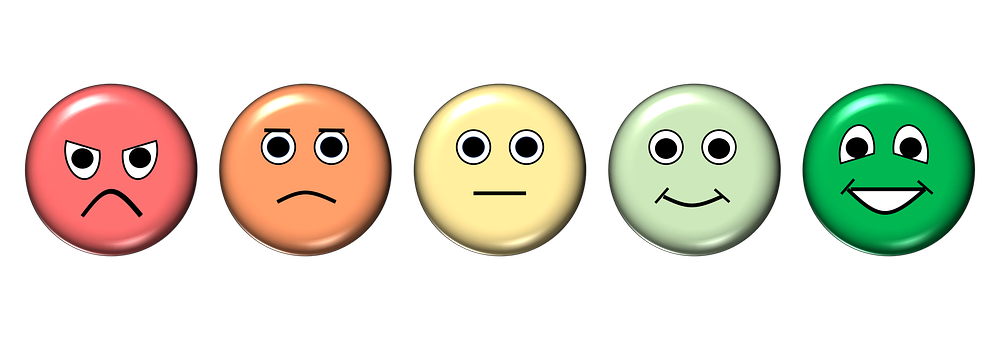Children develop foundational skills for self-regulation in the first five years of life. (Blair 2002; Galinsky 2010) This means that the role of early childhood teachers is essential in helping young children regulate their thinking, emotions and behaviour. Teaching self-regulation is not a theme, but it is a skill that teachers need to model and scaffold during routine activities. Promoting self-regulation in preschoolers one to one during classroom hours is quite easy. But Aaliya strongly believes that all early childhood educators should continue promoting self-regulation even during distance learning. Her new ideas and strategies for supporting young children in regulating their behaviour have been listed in this article.
Using the mood meter
Aaliya practices to begin her virtual class everyday with a mood meter. The mood meter is an excellent socio-emotional activity that helps her preschoolers express, track and manage their emotions well. It also helps them to understand how their friends feel and creates a sense of empathy in them. Aaliya shows a mood meter to her students every morning when they meet. She asks them where do they stand for the day on this mood meter. The educators can be creative in creating these mood meters to grab the student’s attention.

Be supportive and appreciative
When you are not in touch with the preschoolers one to one, it becomes even more important to pay attention to their achievements. Remember it is not easy for preschoolers to attend class virtually. They are bound to get distracted with too many other things on screen. Hence, whenever they pay close attention, responds well or participates in activities, teachers should appreciate them very often. If they seem to be distracted, get their attention back, motivate them, show support and encourage them to participate. Aaliya uses brilliant digitally made stickers to appreciate and encourage her preschoolers during virtual sessions
Help them to delay gratification
Aaliya observed that there were a couple of preschoolers who enjoyed fidgeting with their video calling application. They would put themselves on mute or would keep entering and exiting the class just for fun. Inspired from the marshmallow test, Aaliya tried to delay their gratification in order to meet another goal – get them to listen to her. Her condition was, if they would not touch their laptop until the end of the class, they would get a special badge.
Breathing for peace
Building self-regulation in preschoolers takes time. One of the best ways to calm them out is teaching them breathing techniques. This also help them to be at peace and be mindful of their emotions. Aaliya makes sure to practice 2 minutes of mindful meditation with breathing at the end of her virtual sessions. If required, you can also include breathing sessions in between as transition between two activities.
Make effective use of transitions
Aaliya ensures to include at least one such activity, song or game that promotes self-regulation in preschoolers. Some examples could be – Simon says and clapping patterns. These games largely will help the preschoolers to control their impulses, body awareness and ability to express themselves and be empathetic to others.
As educators and teachers, it is of extreme importance for us to understand that children need to practice regulating themselves. When we strive to help them develop holistically even amidst this pandemic, we should also focus on helping them to develop self-regulation skills. The more they would practice, the easier it will become for them to cope adapt to change. Practice these ideas in your virtual sessions and let us know how they turned out to be for you and your preschoolers in the comment section below.
